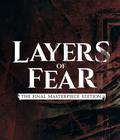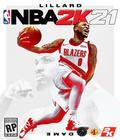Buy NBA 2K21
If aliens or some malevolent genie said I could only choose to watch one sport for the rest of my life, I would have a very hard time not picking basketball. I just like seeing it: the motion, the athleticism, the stars, the pure freedom and beauty of the game. It almost never disappoints. While football can be romanticized with prose about war, brutality and toughness, basketball opens itself to artistic interpretation in its own special way, when one can enter discussions about artistry, beauty, energy, flow and togetherness that can manifest itself anywhere there's a hoop, or even just a ball.
Over the years, the NBA 2K series has managed to bottle up all of roundball essence and deliver an impeccable presentation to the world, managing to balance the game's freewheeling soul with an understanding of the intricacies of its craft and respect for its nerdish complexity. Whether you're just shooting around for fun, running a franchise or playing for a living, NBA 2K found a way to make basketball connect with you.
That's what makes NBA 2K21 a tough title to grade because while it has all of the wonderful things I just mentioned, so did the previous game. It remains another example of sports-title excellence on a variety of levels, but so does the last one, and even the one before it. The appeal of NBA 2K21, even with its litany of subtle tweaks and improvements, feels limited for the first time, mainly because it comes at a time on the calendar when people know a next-gen version promising mind-altering visuals at the very least is just around the corner.
I don't mind what's here in NBA 2K21. I find myself, even now, embroiled most of the time in the MyCareer mode, where one builds a player practically from scratch from a wide range of tools, attributes, player archetypes and athletic profiles. For non-hoops players who might be curious, think of this creation palette the same way you'd think of building a character in an RPG. In a similar way you'd build a wizard who sacrifices defensive fortitude for immense offensive power, you might build a point guard who can shoot the lights out and is an excellent passer, but won't necessarily collect bodies at the rim with his jumping and dunking ability. Each athletic profile and attribute path you choose in the creation process has a web of checks and balances tied down to wingspan and weight, so you can get really nerdy about things if you want. There are more archetypes and athletic profiles available in 2K21, which opens you up to tinker with and tailor your player to how you like to ball (or how you think you like to ball).
I generally enjoy the creation process, but I can't shake a few of the issues and questions I have about the system. One is that even with the expansive stable of profiles and attributes, there's not much that accounts for the bouts of athletic freakishness fans have seen in real life, like young LeBron or Zion Williamson. I didn't see the chance to be a true "anomaly," which I think is what some people would want. Take Zion, a 6-6, 285-pound kid who could pull off 360s and dunk from the foul line when he was a teenager while also being just as fast, quick and skillful as people half his size. I couldn't find any athletic profiles (foundational sets of speed, quickness, jumping ability, strength) that could accommodate that for my own creation, which I would have been curious to try out.
Another issue I have deals with the economy. Much has already been made about the very principle of microtransactions and the constant use of VC, which is the in-game currency of the NBA 2K universe, so I won't add my half-brained thesis to the pile. However, I am bothered by how the progress of your player is so easily tied — and possibly dependent — on how much VC you have in the tank. Even if you have a deep bank of upgrade points, it still costs VC to use them. Since I've played so much 2K and spent a little bit of real money to gain packs of VC, I was able to make my player pretty good, or at least passable, at the outset of his journey, which in 2K21, starts in high school. If you don't have a ton of currency, however, you're going to be stuck with a player who has high potential but is extremely — and maddeningly — unskilled compared to everyone else on the court. Every game could be a grind of blown shots and missed opportunities that some people might not have the time and patience for, when all they want is a taste of the story and fantasy of making it to the NBA. Not having enough VC shouldn't feel like something for which you get punished.
Regardless of whatever state of "grind" I was in, I honestly enjoyed the storytelling part of MyCareer. Not only does it start with some classic Tribe music, but it's loaded with actors I like: Mireille Enos, Djimon Hounsou, Jesse Williams, Michael K. Williams, etc. You're in the shoes of Junior, a Newark, N.J. teenager whose father, Duke (Jesse Williams), was a local legend who casts a shadow over everything Junior does. Junior's actually a football player transitioning to hoops for his senior year of high school after being recruited to play by Coach Bishop (Hounsou). Junior embarks on his own version of "Hoop Dreams," trying to elevate his status from an unknown recruit in high school to possibly a four- or five-star blue chipper desired by plenty of big-time college programs.
As Junior, your progression and possible ascension — depending on how well you actually play — is supported with some engaging cut scenes that deal with Junior's past relationship with his dad, including an intricate conversation between the two as to why Duke never got drafted. There's also increasing pressure, a decision on whether to play hurt, a parallel journey with a highly touted rival player named Hendrixx Cobb who also happens to be Junior's childhood buddy. Thankfully, Cobb isn't played as the typical rival asshole. Instead, he's encouraging and supportive, comfortable in his skin as the top player in the country while always telling Junior that he truly belongs on a basketball court, even if he wins or loses against him.
Eventually, as Junior keeps playing, there are more cut scenes that deal with Junior eventually finding a college girlfriend in Ellie (May Calamawy), navigating the world of big-time hoops with pseudo-agent Archie Baldwin (Michael K. Williams), having to eventually choose between Archie and corporate super-agent Harper Dell (Enos) and working out and preparing for the draft if you do well enough. You'll even run into Zion Williamson and Portland superstar Damian Lillard on the way. While you're in college, your play determines your draft projection, which can range from solid first-round pick to being totally undrafted. Thankfully, I managed to play myself all the way to being picked second overall.
After that, you engage in typical MyCareer stuff, where you can practice, play, build up your player and build your career. I find it a little disheartening that the drama doesn't carry at various points throughout your career, where there are several chances to do so. What about when you're looking to move on from your current team? What if Junior runs into Ellie again after her tour with the Canadian national soccer team? What about the constant media pressure and dueling with any particularly combative media personalities? Just because you make it to the NBA doesn't mean the story stuff has to end. That's a possible gateway to pull in different kinds of players, the kind of people who like hoops but can also spend 100 hours diving into Skyrim or Ghost of Tsushima. Those people exist.
One thing that felt like a potential stumbling block is the new way the shot stick is handled, which now focuses on you "aiming" at the ideal center of a small targeting window instead of releasing the stick at the perfect time. The right stick/pro stick functionality as a whole has been overhauled. Before, you could pull the right stick in any direction to shoot; now, you pull down and release to shoot, while other directions open up a catalog of dribble moves.
Personally, after a period of adapting, I dug the changes, and they seemed to make more sense. I was able to pull off moves more easily and intuitively than before, creating some on-court magic during some games in MyCareer that were a little clunkier to do in editions past. There's also an expanded arsenal of size-ups and chainable dribble maneuvers that I've only begun to start doing with semi-regularity. My concern is that this adjustment signals more of a bend toward pro players and steadier fans instead of people who might think about venturing into 2K hoops for the first time or once in a while. There's already an encyclopedic amount of moves and controls to think about for every aspect of play on the court, and taking all of it in at once could be overwhelming and possibly exclusive to new or more casual players. However, perhaps all this fits within the basketball ethos of "rise and grind" and always "putting in work" to hone your craft. That's on you to decide.
While NBA 2K21 is clearly different from its predecessor in several ways, I can't say it's significantly better than what we saw last season. The game still looks fantastic, the commentary is still top-notch, and many of the same battles you might have had with the previous edition are still there, like whether you want to spend so much virtual and real money. If you don't have any basketball games in your library and want to change that, then by all means, this is as good as it can possibly get. If your whole virtual hoops life is lived on 2K20 for now, then waiting for next-gen isn't the worst move you can make.
Score: 7.0/10
More articles about NBA 2K21













 NBA 2K21 continues the franchise's tradition as the gold standard of basketball simulation across all platforms with unrivaled realism and true NBA gameplay.
NBA 2K21 continues the franchise's tradition as the gold standard of basketball simulation across all platforms with unrivaled realism and true NBA gameplay.

















